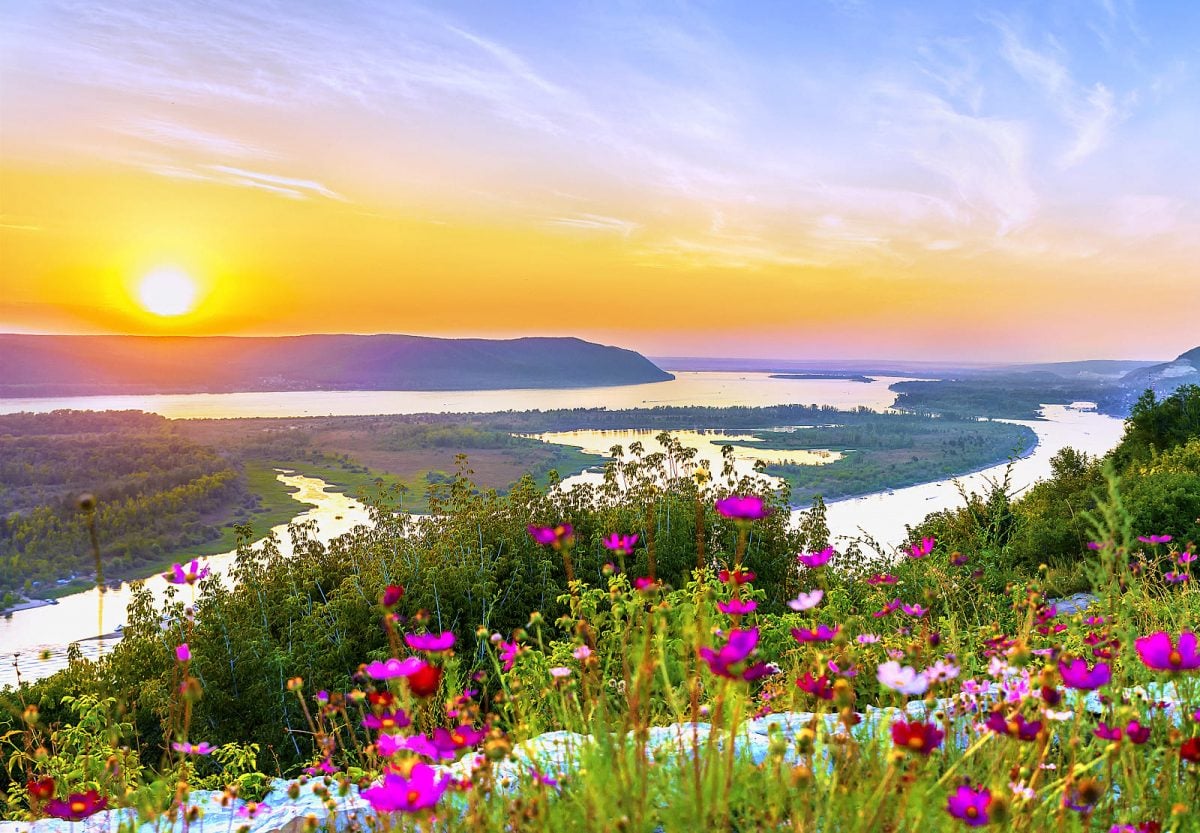Volga River

The Volga River, often referred to as the heart and soul of Russia, holds a profound cultural significance that transcends time and borders. For centuries, this majestic waterway has served as a source of inspiration, a lifeline for communities, and a symbol of Russian identity. In this exploration, we delve into why the Volga River is culturally important, uncovering the diverse artistic, musical, and traditional heritage that flourishes along its banks.
I. Artistic Inspiration: Capturing the Essence of the Volga
1. Paintings and Visual Art
The Volga River has long been a muse for artists, inspiring countless paintings, drawings, and other visual artworks that capture its beauty and grandeur. From romantic landscapes to vibrant cityscapes, artists have sought to convey the essence of the Volga and its significance in Russian culture.
2. Literary Works and Poetry
Russian literature is replete with references to the Volga River, with many iconic works of fiction and poetry drawing inspiration from its shores. Writers such as Ivan Turgenev, Maxim Gorky, and Fyodor Dostoevsky have immortalized the Volga in their writings, exploring themes of nature, society, and the human condition.
II. Musical Heritage: Melodies Along the Volga
1. Folk Songs and Ballads
The Volga River basin is home to a rich tradition of folk music, with songs and ballads that reflect the rhythms of life along its banks. These melodies often celebrate the natural beauty of the river, the resilience of its people, and the timeless connection between land and water.
2. Classical Compositions
Classical composers have also drawn inspiration from the Volga, incorporating its themes and motifs into their musical compositions. From Mikhail Glinka’s “Barges” to Pyotr Tchaikovsky’s “Volga Boatmen’s Song,” these works evoke the spirit of the river and its place in Russian culture.
III. Cultural Traditions: Celebrating Life on the Volga
1. Festivals and Celebrations
Throughout the year, communities along the Volga River come together to celebrate their cultural heritage through festivals and celebrations. From traditional folk festivals to religious observances, these events showcase the diversity and vibrancy of life on the Volga.
2. Culinary Delights
The culinary traditions of the Volga River region are as diverse as its people, with a rich tapestry of flavors and dishes that reflect the bounty of the land and the river. From hearty soups and stews to delicate pastries and desserts, Volga cuisine is a celebration of local ingredients and culinary craftsmanship.
IV. Historical Significance: A Witness to Russian History
1. Settlements and Urban Centers
The Volga has been a cradle of civilization for millennia, with ancient settlements and urban centers dating back to prehistoric times. These historical sites bear witness to the ebb and flow of human history along the Volga, from the early civilizations to the present day.
2. Trade and Commerce
Throughout history, the Volga has been a vital artery for trade and commerce, connecting Russia’s heartland with distant lands and cultures. The river’s strategic importance as a trade route has shaped the economic and cultural landscape of the region, leaving a lasting legacy that endures to this day.
V. Environmental Importance: Preserving the Volga’s Legacy
1. Biodiversity and Ecosystems
The Volga River basin is home to a rich diversity of plant and animal species, many of which are found nowhere else on Earth. Protecting the biodiversity and ecosystems of the Volga is essential for maintaining the cultural and ecological integrity of the region. The Oka River, Kama River, Vetluga River, and Sura River are the main tributaries of the Volga, among many others.
2. Conservation Efforts
Efforts to conserve and preserve the Volga and its surrounding habitats are underway, aimed at safeguarding this natural treasure for future generations. From habitat restoration projects to pollution control measures, these initiatives play a crucial role in ensuring the continued cultural importance of the Volga River.
Conclusion: A Cultural Legacy Beyond Measure
In unraveling the cultural significance of the Volga River, we have touched upon just a fraction of its vast and multifaceted heritage. From the realms of art and music to the traditions of food and festivals, the Volga embodies the essence of Russian culture and identity. As we celebrate its legacy and diversity, let us also recognize the importance of preserving and protecting this cultural treasure for generations to come.
Know More about the Volga River.
What are The Religious Places of the Volga River?
When Did The Volga River Basin Become a Focus?
Where is The Volga River Located?
Who Were The Key Historical Figures and Civilizations of The Volga River?
How to Reach Volga River?




